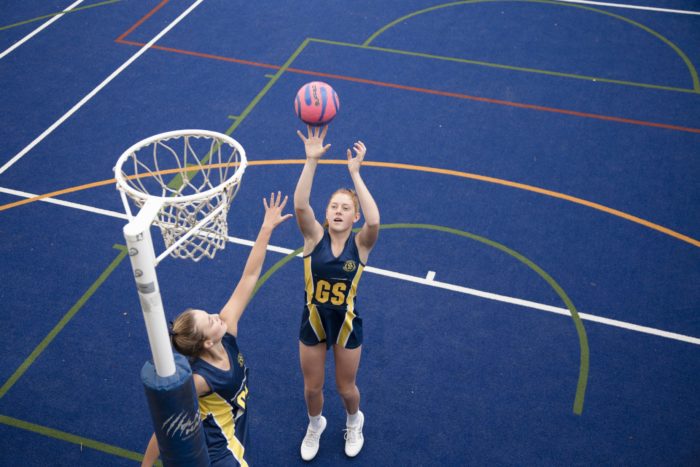In the Media: Schooldays Magazine, 24 May 2021, By Amber Sowden
Football training, music lessons, language tuition, arts classes, swimming school. For some parents this list of kids’ activities reads like a familiar weekly schedule, while for others it sounds like list of unnecessary demands on family life.
As parents we want our children to have ample opportunity to discover their interests and talents in order to lead well-rounded, successful lives.
For some families, this means the week is packed full of post school lessons and training sessions, while for other families this means one session of instruction a week. For others no formal extracurricular activities at all, opting instead for unstructured time to explore the world.
When it comes to formal tuition and unstructured free time, how do we get the balance right so our children are able to thrive and not burnout?
How do we spot the tipping point where scheduled activities begin to overload our children and instead of enriching their lives with positive benefit, lead to overwhelm and fatigue?
Benefits of structured extra-curricular activities
It’s rare for children to be entirely self-trained musicians or athletes, and formal instruction will push children to develop the technical skills required to master a task. Regular physical activity will help set children up for a lifetime of positive health behaviours, while music lessons can unlock parts of the brain needed to excel academically. The arts can provide a much-needed outlet for self expression.
Regular, structured activities teach children the discipline of learning, the importance of practice and the reward of success.
Benefits of unstructured free play
Of particular importance during the primary years, unstructured playtime allows children to explore, imagine, create and discover on their own terms, without the restrictions of predetermined rules and guidelines that govern schoolwork and structured activities.
Free play has been proven to foster cognitive development and positively influence social and emotional growth. It can aid in the development of independence and assertiveness while allowing creative energy to flow.
It’s not just about talent
While school activities are important, partaking in local activities can expose children to social and cultural diversity beyond the school grounds. This helps children build peer groups independent from school, ensuring they have multiple social circles to move in. This can later safeguard children from feeling isolated should they choose to break away from a particular social group.
Balancing act
It is important for parents to prioritise and model downtime and rest. Over-scheduled parents create an environment where busyness is standard. While especially busy periods are normal, children should learn that these cycles are coupled with rest and relaxation.
Down-time might be unstructured play, reading, watching TV and sleep. Remember, wellbeing is linked to being well rested.
By modelling this for your child and allowing for rest and downtime as part of their weekly schedule will safeguard against burnout, fatigue and will help maintain a healthy sense of wellbeing.
How to help your child choose extra-curricular activities
Choosing the right extra curricular activities for your child will require honest, unbiased conversations with your child about what they like to do and how they are feeling.
Getting it right will depend on your child’s interests as well as their needs. It is also important that you do not choose their activities for them. Rather make suggestions. Listen to their thought process and assist your child to choose for themselves.
Despite this, considerations also need to be given to scheduling, time and finances. The cost of activities needs to fit within the family budget so choosing wisely and prioritising will be important.
Some activities will require travelling to practice or games, while musical instruments also demand time for daily practice. In secondary school these responsibilities intensify as it is likely your child will represent their school or club at a competitive level.
The best activity for your child might also change with age. For example, team sports can be great at primary school level for kids who are perhaps struggling to form social connections in the playground and classroom. At a secondary level team sports can become increasingly competitive and therefore will not be the right choice for some children.
Spot the signs of burnout
Fatigue and increased irritability, particularly in younger children, are a strong indication that more downtime and unstructured play or free time is needed.
If your child isn’t motivated to go to an activity, it might be time to have a conversation about honouring the commitment and sticking with it until the sessions of lessons or term finishes, and then knock it off the to-do list. Review who is holding on to the idea of maintaining attendance and perhaps take a break while you and your child review the longer-term goals.
Lastly, over-scheduled children may stay up late to complete school work. Scaling back activities might be necessary to maintain balance and to meet academic obligations.
Determining the number of hours your family commits to out-of-school activities will depend on your child, your family budget and personal flexibility. Some children will thrive with daily outside of school sessions, while others will need study time built into their week while others will want to enjoy unstructured free time for play and creativity.
Maintaining an open conversation with your family about what’s working and with your child about what’s making them feel happy and fulfilled will ensure that you get the balance right and feel the real benefit of extracurricular activities.
About the Author
Amber Sowden is Dean of Students at Strathcona Girls Grammar and oversees the pastoral care and wellbeing programming for students in years 7-12. With over 20 years’ experience in both health and physical education, Amber is passionate about strengths-based education in health and developing wellbeing programs that nurture the protective factors of belonging, resilience, empathy and social capital. Amber has held senior roles in a variety of independent schools in both the UK and Australia and has a Masters in Education Leadership and a Graduate Certificate in Adolescent Health and Wellbeing.


